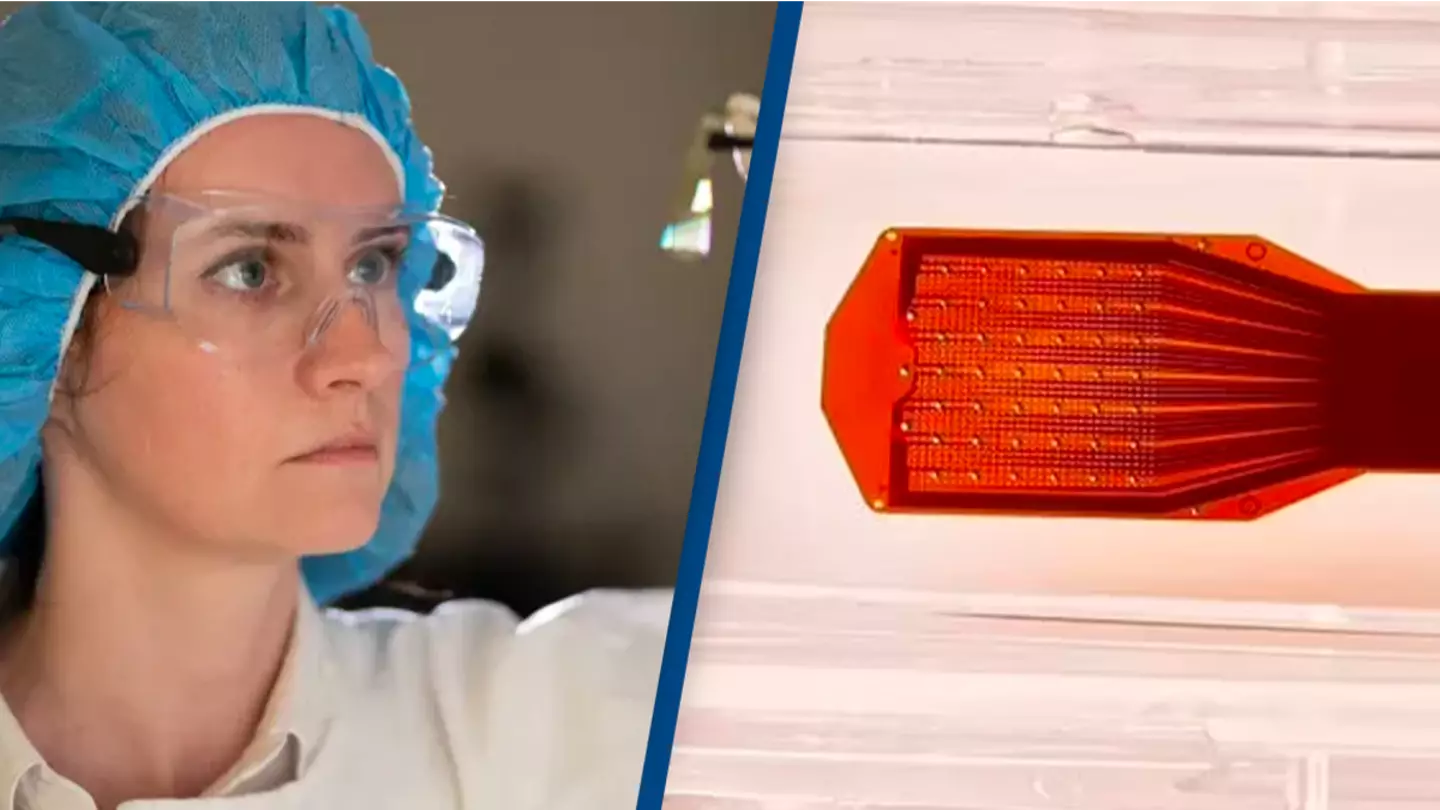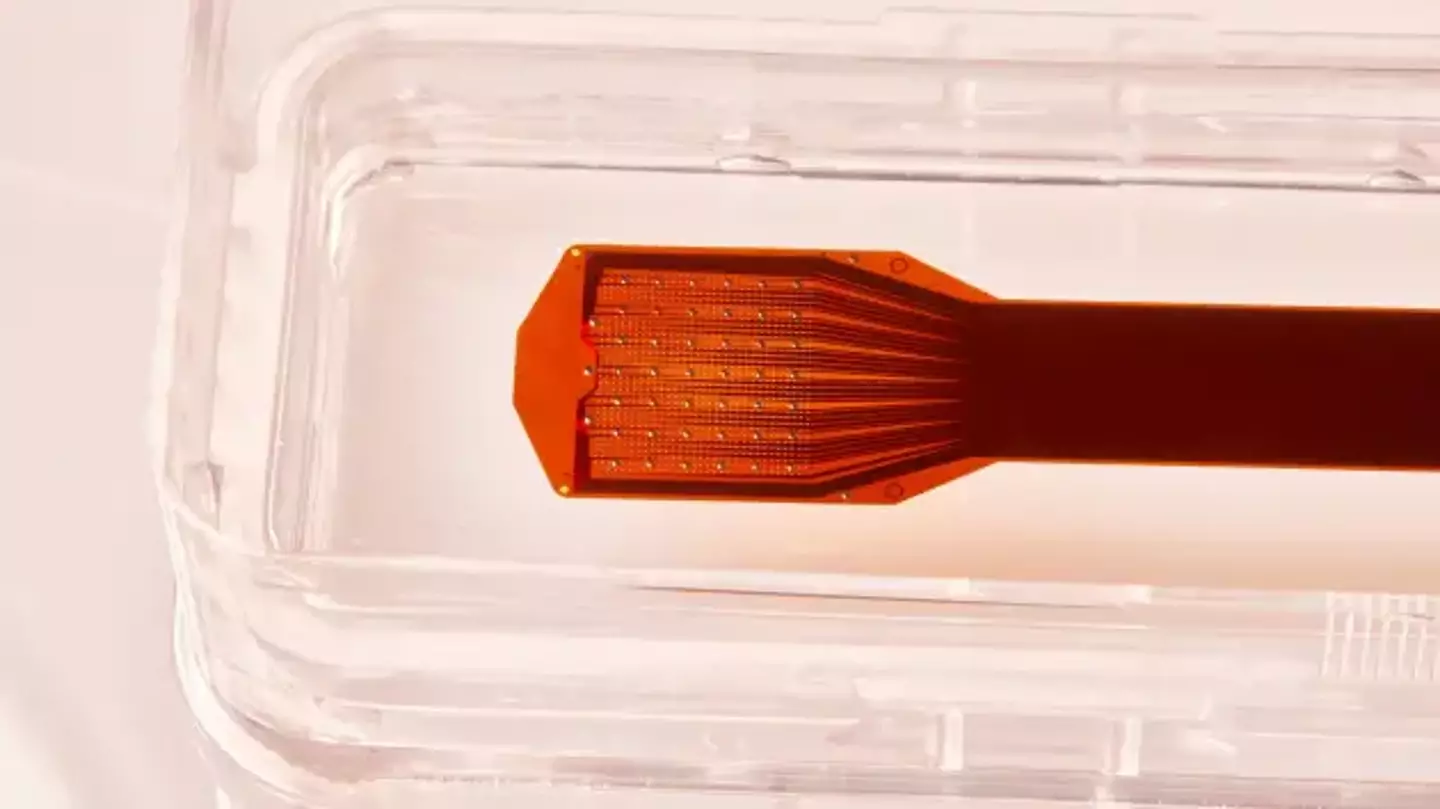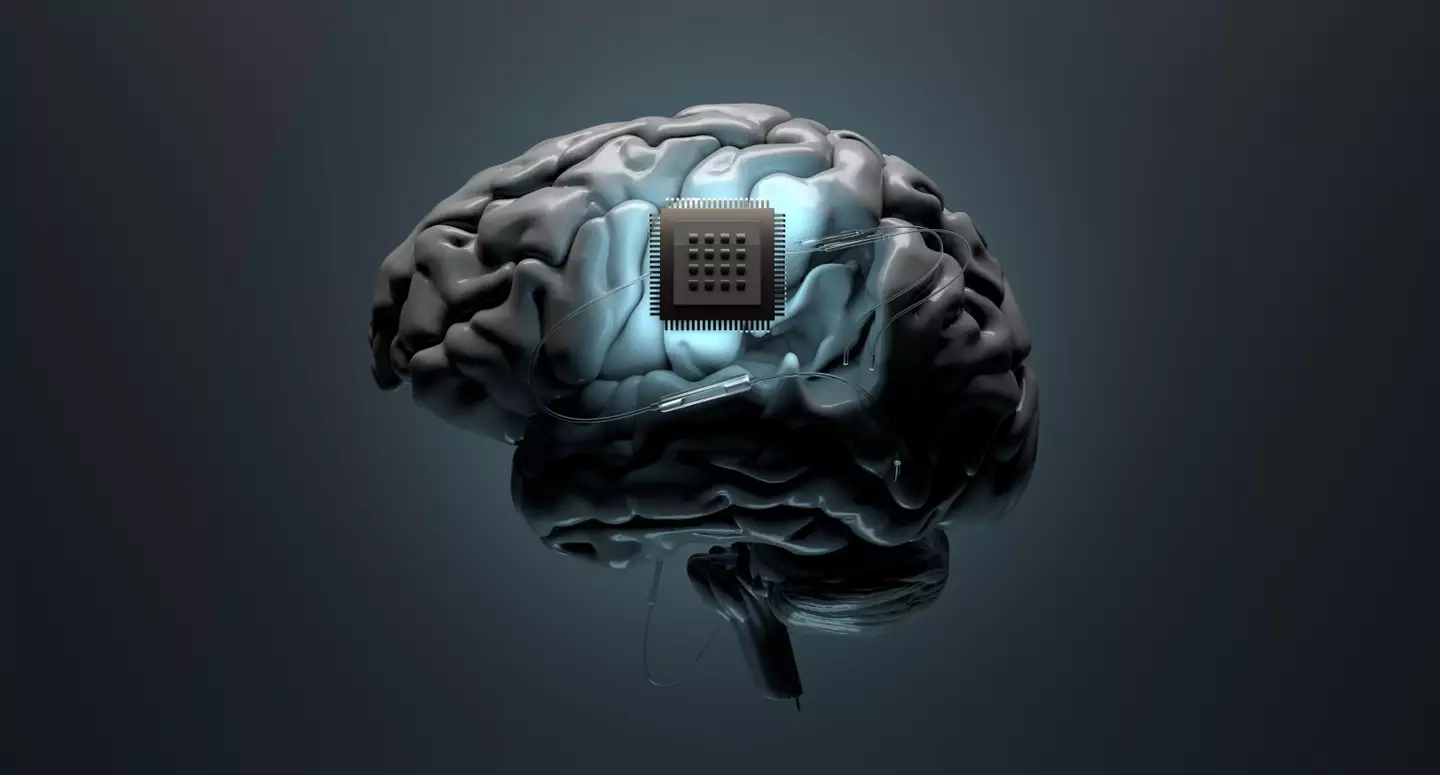
Scientists have developed a minuscule brain implant smaller than a human hair which allows people to control computers with their minds.
The chip is developed by Precision Neuroscience and works along similar principles to those of Elon Musk's Neuralink company, though the Precision chip sits on the brain rather than in the tissue.
By cutting a thin slit in a human skull and sliding the chip in through it until it sits on a person's brain it has made the process of implanting the implant less invasive, which sounds good when it involves cutting into your head and sticking things into your brain.
This might sound a bit strange, as though it's right out of science fiction, but the main purpose of this invention is to allow people who suffer from disabilities or paralysis the opportunity to use computers to communicate.
Advert
It's a way to access modern technology without a keyboard and mouse, and while it's intended to help people who can't physically use computers anyone could make use of it if they got one implanted.

The brain implant itself is called a Layer 7 Cortical Interface, so named because there are six cellular layers that make up a person's cerebral cortex and the tech company reckons their implant will essentially function as another one.
It allows a person to control digital devices with neural signals, letting someone move a cursor across a screen or type without a keyboard.
Advert
This means someone could pretty much get the full run of the internet even if they used to be unable to use computers, meaning the implant could be used to get people onto social media and chatting with the whole world.
While you might think getting your skull cut open and having this thing implanted in your brain sounds pretty permanent it's actually removable, so you could either get rid of it or get a newer version further down the line.

Precision are seeking approval to begin human testing within months, and they are by no means the only place developing brain implants which let people control technology around them.
Advert
The Neuralink brain implant has enabled monkeys to use computers with their brains, and Musk said human testing with the device would be just a few months away.
Another brain implant company, Synchron, is currently putting their chip through trials after promising to give an initial six paralysed people the chance to use the device.
A second human trial for a brain implant which treats depression is already underway and works by sending small electrical pulses into the brain, a technique similar to treating Parkinson's and epilepsy.
Topics: Technology, Health, Science